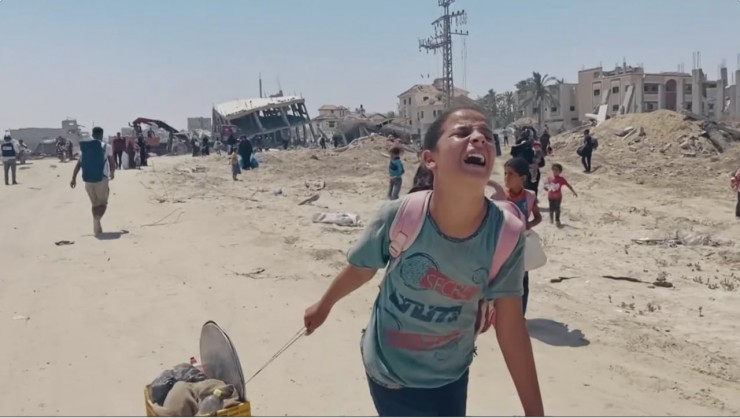What it means to be a director has changed a lot in recent years, and not always for the better. As individuals have proved themselves capable of handling a greater number of specialist skill-sets, the amount of responsibility and pressure that directors are asked - and expected - to manage has increased exponentially. Some of you may remember the days when directors were supported on location by a camera operator, sound recordist, assistant producer and/ or researcher, and a runner. But I suspect most of you won't. Indeed, many of you may well routinely find yourselves fulfilling all these roles single-handedly.
That you are so professionally adept is remarkable. But unfortunately the industry at large does not always appear to recognise this. In fact, quite the opposite. At times, sectors of the industry are guilty of blatantly taking directors’ skills for granted, by asking them to work in a way that is at best disrespectful and at worst borderline, if not actually, illegal.
Worst of all, this has become so culturally ingrained that often directors simply see all of this as part of the job. We are all familiar with the voice in our heads that tells us we can’t afford to rock the boat; that the future of our careers depends on not alienating potential employers; that we should therefore simply take on the chin what we are being asked to do. Because if we don’t, somebody else will.
This can’t go on. Because often what directors are being asked to do is not ok – and in fact poses a credible risk to personal safety.
The content of many programmes continues to push in more extreme and dangerous directions, and there’s nothing wrong with that. But all shoots – let alone those involving an overt element of risk – require sensitive planning that is focused on the welfare of the people on the frontline. Increasingly we are hearing of instances where this does not appear to be the case.
In the last couple of years, a shocking number of situations have come to light in which freelancers have been asked to handle physically and psychologically difficult shoots, with inadequate resources. I don’t believe I’m exaggerating to say that, at times, lives are being put at risk. And I would urge everyone – from individuals considering a job, to production companies advertising a job, to broadcasters offering up a commission – to be alert to the pressures that go hand in hand with delivering quality content, and to do all they can to ensure that all production roles are properly supported.
In this area, no-one is more exposed than the self-shooter. The fact that a single person can deliver results that once required four different crew members means great opportunities for individual careers and for the nature of productions. But placing that volume of responsibility within one person creates a level of pressure that should not be underestimated. Add to that the long hours and tight deadlines of a typical production and this pressure increases. If that person is then being asked to drive long distances, manage shoot logistics, wrangle rushes, prepare edit notes, and so on, the pressure mounts further. As does the fatigue. And when that person is also operating alone on location – as is so often the case – serious questions must be asked of the risk assessment.
Given the workload, logistics, pressures and deadlines that a director has to manage day in day out, lone shooting presents perhaps the biggest risk to personal safety. That is not to say that lone shooting should not exist. But in every instance, it should be rigorously interrogated to make sure it is appropriate. And by appropriate, I mean appropriate from a safety perspective for the crew member involved – not from a budgetary perspective for the production company.
We are seeing jobs being posted that, on the surface, appear to be taking chances with personal safety. We are hearing of jobs on which people are being sent into inherently dangerous or sensitive situations completely unassisted. And we are hearing of individuals who are feeling pressured into working solo on roles that may not, on paper, look risky but which, in reality, are so logistically arduous that the mental pressures and the physical impact of fatigue place them in very real jeopardy.
Directors UK is working hard to bring about a cultural change, and is currently involved in high level discussions that – hopefully – will have an impact. Talent Manager is ramping up its vetting procedures to try and identify positions that might expose freelancers to inappropriate levels of risk.
But all freelancers should feel confident in taking a stand. Because at the end of the long, exhausting, poorly-resourced day, it is your health and safety that is at stake. I would urge you all to flag any concerns you may have around job posts to both Directors UK and Talent Manager. And if you find yourself in a situation within a job that you feel is unsafe, please don’t hesitate to bring it to my attention. We can’t afford to be scared of the consequences of speaking up. Because the consequences of not speaking up could be far, far worse.
Nic Guttridge is the Chair of Directors UK’s Factual Television, and Working Practices Committees
TVfactual@directors.uk.com


